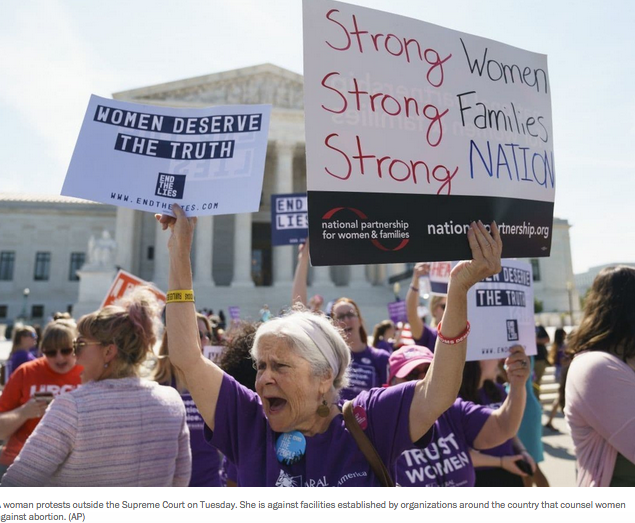On Tuesday, the Supreme Court struck down a California law regulating antiabortion crisis pregnancy centers, which are Christian counseling centers that try to persuade women to continue their pregnancies. California had required pregnancy centers with a medical license to tell women that the state provided free or low-cost services, including abortion, to low-income women. If a center wasn’t licensed, the facility had to post a sign saying so.
For all the justices, the case boiled down to a question of fairness. Writing for the majority, Justice Clarence Thomas accused California of discriminating against Christians. After all, the state demanded that crisis pregnancy centers — and no similar facilities — post notices about other services. Justice Stephen G. Breyer argued that the discrimination actually ran the other way: The Supreme Court had upheld laws requiring abortion providers to recite a state-mandated script but wouldn’t do the same when antiabortion activists made their case.
Breyer’s argument reveals an inconsistency in the court’s approach to crisis pregnancy centers. The court is allowing these centers to have it both ways: to claim the protections of a religious entity while being allowed to dole out medical advice. That leeway stands in sharp contrast to the mounting restrictions placed on abortion providers.




